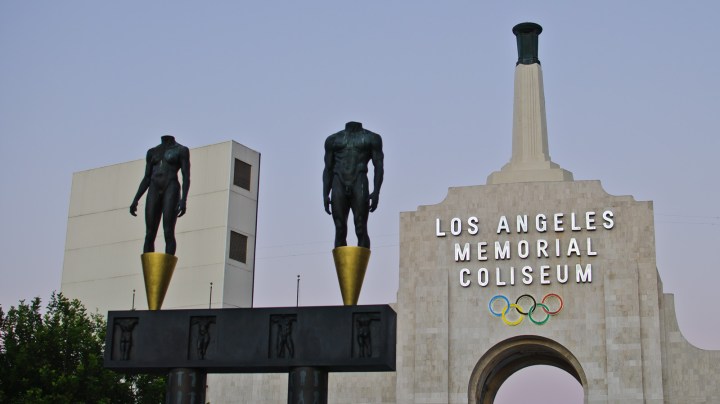Here’s How Los Angeles’ Bid For the 2024 Olympics Might Negatively Impact Latinos

Wikimedia Commons
Los Angeles has officially been chosen as the U.S. candidate for the 2024 Olympics.
Boston said “no” in a historic fashion, so now it’s LA’s time to shine. After all, “where LA goes is where the rest of the state goes and where the rest of the country goes.” Right? Not so fast.
While La Reconquista has definitely hit LA (Latinos have surpassed whites as the largest ethnic group in California, fuck yes), LA2024 might actually be a step back – a conquista de nuevo, so to speak.
Mayor Eric Garcetti has made emphatic statements like “it is important to stress that we are not changing the face of our city to fit the Olympic Games.” The International Olympic Committee has placed new emphasis on sustainable development. City Council has apparently voted unanimously in favor of the bid. But does LA’s draw as a global sports destination have the potential to do more harm than good? Will it militarize and gentrify spaces in ways that might be deemed conquistador-esque?
Various numbers have been thrown around in recent days, but analysts are projecting a $4.1 billion cost, with $4.8 billion in revenue from ticket sales, sponsorships, broadcasting – you name it. That makes for just about a $161 million surplus. Can you name a single time from the last 20 years that a city has actually made a profit from hosting the Olympic Games?

No. On the contrary – the Olympics have the power to leave pretty nasty legacies in their wake. As Jonathan Cohn and Robin Jacks eloquently state in their article for The Nation, one of the “most troubling” ways that the competition can take over and affect a city is through the “militarization of public space.” Apparently, the National Security Special Event designation hands control of local policing to the Secret Service, Department of Homeland Security, and FBI; “increased patrols and use (and abuse) of stop-and-frisk will exacerbate the problems of over-policing, and the immense budgets for Olympic ‘security’ will provide police forces with new weapons and surveillance tools.” Hmm…the legacy of these games might not be as bright as we’d like to think.
Additionally, while LA has more infrastructural capacity for an event like the Olympics than other major cities around the world, reconstructing, remodeling, renovating, rebuilding, renewal, and other similar re-words will inevitably lead to gentrification, with an influx of affluent people conquering previously struggling spaces.
LA has hosted the Olympic Games twice before, the first time in 1932, immediately following the Great Depression. No other city was even remotely interested in hosting the rest of the world at that time, and less than half of the participants from the previous games attended. The U.S. came in first with a grand total of 103 points (41 gold, 32 silver, and 30 bronze), followed by Italy with 36. In 1984, the city played host for a second time. Similarly to the first edition, Tehran was the only other interested party, and upon declining the bid due to Iranian political and social issues, the games were awarded to LA by default. The U.S. was once again victorious, with 174 points (83 gold, 61 silver, and 30 bronze), followed by Romania with 53.
Might this actually be the opposite of the Reconquista? Maybe Los Angeles should follow suit and say no too.